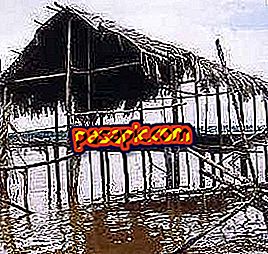How to study the Bible

The Bible is a book that has generated controversy for centuries; In it, texts written in Hebrew, Aramaic and Greek are compiled, which brings together a series of stories about God's relationship with man. Some argue its veracity and others have simply decided to take what it says there as a manual to live. What is clear is that the Bible is a book to study and not just to read, since it lends itself to interpretations taken out of context, so in this we explain how to study the Bible .
Steps to follow:one
Begin with the New Testament . The bible is divided into two parts. The Old Testament is the first group of books made up of the Pentateuch, which are the first 5 and then the sapiential, historical and prophetic books. In the New Testament we find what was the life of Jesus and the teachings he left to his disciples in the gospels and then there are different letters that tell the life of some disciples after the death of Jesus.
Additionally, you must choose a version in this case the most recommended is the New International Version (NIV) that is written in a simpler language. For those who prefer a more romantic version, the Reina Valera version may be useful. The idea of starting with the New Testament and specifically the Gospels is because it will be easier and you will know the life of Jesus in depth.
two
The study of any sacred book is called hermeneutics and from here the principles for the interpretation of these texts are set, it is what you must carry out to know how to study the Bible . In this study what you need to keep in mind is the following:
- Literal sense : here there is no space for interpretations, you just have to be guided by what the text says.
- Spiritual sense : it is what you think God is trying to say and that at the end of the study you will try to apply.
Additionally, you can ask questions to give context to what you are going to read, such as:
- By whom was this book written?
- To whom is this passage addressed?
- What was it written for?

3
Once you have placed yourself in the New Testament, you must choose a book, the recommendation is to begin with the Gospels. Start by reading the first chapter of the book you have chosen, in case it is very long you can divide it into two parts. In case you have not understood a word, look it up in the dictionary before continuing with the reading.
4
Paraphrase the verses you read without altering anything, here it is necessary that you do not add words or omit others that may be important for the main message. Specify the main point of what God wanted to convey, for example faith, forgiveness etc, and from here extract the truths of the text . You can ask questions such as:
- What do you learn about God in this chapter?
- What do you learn from the people that are discussed in this chapter?

5
The last and most important point to study the Bible is the application, look how you can adapt those truths extracted from the text to your life or identify situations in which you need to put into practice what you just read. In the end, studying the Bible is about observing the context, understanding the text, sharing what you have learned and living according to what you have studied.
6
Reading the Bible is a gesture of intimacy with God so if possible, set aside time for this without interruptions or distractions that will prevent you from understanding what God really means. The advisable thing is that if you are beginning to study the Bible you look for a coach or a group of study, since this will help you to study it in a deeper way and understanding the contexts, you can also use biblical dictionaries for a wider explanation of terms that you do not know



